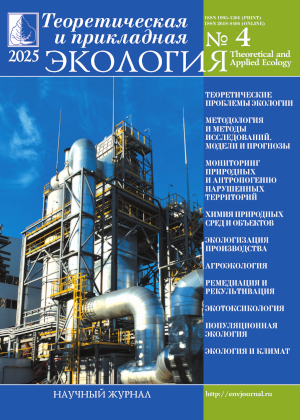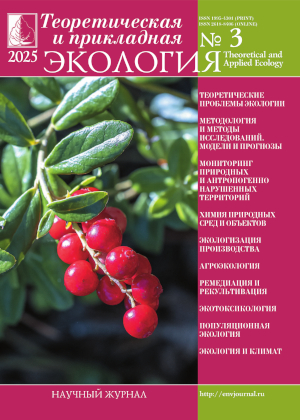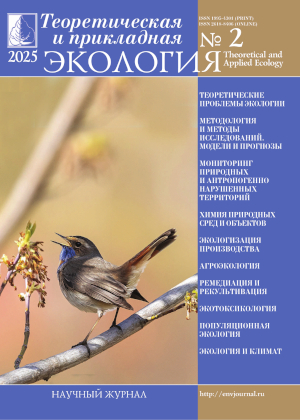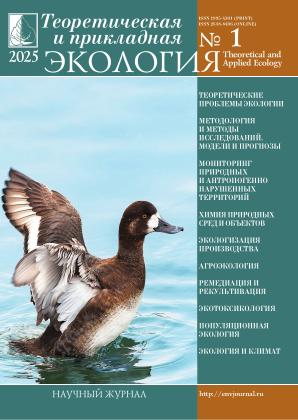 ISSN 1995-4301
ISSN 1995-4301(Print)
ISSN 2618-8406
(Online)
Online version of the journal
|
Comprehensive assessment of water chemical composition, taking into account the peculiarities of natural water sources of urban ecosystems |
||||
| Yu.A. Tunakova, V.S. Valiev, R.I. Fayzulin, A.R. Galimova, E.V. Baibakova | ||||
| Section: Chemistry of natural environments and objects |
||||
| Natural waters are solutions of complex composition with a wide list and ranges of dissolved substances content. Limitations of the current water treatment system at water intakes determine the influence of the chemical composition of natural waters on the formed composition of prepared drinking water. The amount of dissolved substances in drinking water will depend, on the one hand, on natural and anthropogenic conditions of formation of chemical composition of used natural waters, and, on the other hand, on methods and efficiency of their treatment during preparation of drinking water. Outdated and insufficiently effective systems of natural water treatment at water intakes form a close relationship between chemical compositions of natural waters and drinking water prepared from them. However, the quality assessment of prepared drinking water of centralized drinking water supply systems is carried out from sanitary-hygienic positions, without taking into account anthropogenic load on natural waters and natural-anthropogenic features of their chemical composition. Moreover, drinking water prepared from natural waters is an aquatic element of the urban ecosystem, which requires the use of ecological approaches to assess their quality. Objectivity of quality assessment of any objects directly depends on the list of accounted pollutants. Thus, according to RD 52.24.643-2002, for a comprehensive assessment of the chemical composition of surface waters, 15 mandatory indicators should be taken into account when calculating the specific combinatorial index of water pollution (SCIWPI). To assess the quality of drinking water, the methodology of SCIWPI calculation was applied, but using the list of indicators and their thresholds determined in the program of sociohygienic monitoring of drinking water. A new indicator for assessing the chemical composition of drinking water, called hydrochemical status, is proposed to generalize ecological and sanitary-hygienic approaches in assessing the quality of drinking water as an aquatic element of the urban ecosystem. The calculation of the proposed indicator for assessing the chemical composition of drinking water in the territory of Kazan is tested. The verification of the indicator with the SCIWPI values and the level of ecological risk with gradations of risk acceptability and water quality classes is carried out, which allows to assess all these indicators together. | ||||
| Keywords: surface water, drinking water, chemical composition, specific combinatorial index of water pollution, calculation methodology, complex indicator, drinking water quality assessment |
||||
| Link | ||||
| Article published in number 2 for 2025 DOI: 10.25750/1995-4301-2025-2-109-117 |
||||
|
|
36, Moskovskya street, Kirov, 610000, Editorial Board "Theoretical and Applied Ecology." Phone/fax: (8332) 37-02-77 e-mail: envjournal@vyatsu.ru The journal was founded in 2007 |
||||||




 Select viewing options
Select viewing options